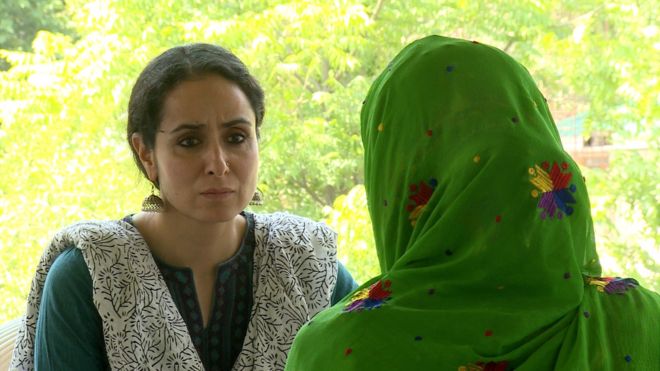As American Muslims, should we stand with the Pilgrims or the Indians?
Since Abraham Lincoln issued a proclamation in 1863 in the midst of the Civil War, Americans have celebrated a November Thursday as a day of Thanksgiving and Praise. Since 1970, a Native American group in New England has observed this same day as a National Day of Mourning. They are descendents of the indigenous Wampanoag Indians who encountered the Pilgrims that landed at Plymouth Rock. Each year at Plymouth Rock itself, the group - along with hundreds of allies - mourn the theft of their lands and food by the Pilgrims, and the enslavement and subjugation of their ancestors. At the same time, they also look forward to an America filled with justice and freed of brutality.
So, should American Muslims give thanks and praise the Creator, or should we mourn on this day? We should both give thanks and remember the past. We should stand in earnest compassion with the Pilgrims and in genuine solidarity with the Indians, helping each in their needs. As the Prophet Muhammad, peace and blessings be upon him, said: "A person should help his brother whether he is the oppressor or the oppressed. If he is the oppressor he should prevent him from doing so, for that is his help; and if he is the oppressed he should be helped against oppression."
As Muslims, we should always be thankful and truly grateful for all that we have. Although things could be better, things could also always be much, much worse. We should be mindful of the distance we need to go ? as individuals, as a community and as a country. As America marks a Day of Thanksgiving, let American Muslims also commit ourselves to both an unfailing gratitude and to the struggles for racial and economic justice and peace.
Let's make this a day of thanksgiving and remembrance of our heritage as American Muslims. Let's recount the good and the bad, so we can better understand our role in America in these remarkable times.
This Thanksgiving, let's remember the Muslims who arrived in America in the hulls of slave ships after crossing the Middle Passage. After all, Malcolm X did say, "We didn't land on Plymouth Rock; Plymouth Rock landed on us!" Historians estimate that a quarter of African slaves brought to America were Muslim. When Alex Haley traced his Roots, he traced them through Kunte Kinte to a Muslim village in West Africa. Historian Sylviane Diouf has eloquently described this experience in her book "African Muslims Enslaved in the Americas". Let's give thanks for those lifted out of slavery, and for the dignity in struggle of the late Rosa Parks and her generation.
Let's remember the vision of religious pluralism of our Founding Fathers. According to James Hutson, chief of the Library of Congress' Manuscript division, the Founding Fathers - especially Thomas Jefferson & George Washington - "explicitly included Islam in their vision of the future of the republic". Thomas Jefferson was more proud of his effort to pass Virginia's landmark Statute for Establishing Religious Freedom in 1786 than he was of his presidency. (Some say a future president would be similarly more proud of his stint as the manager of baseball team in Texas.) In his Autobiography, Jefferson praised the Virginia Statute's "mantle of protection," which included "the Jew and the Gentile, the Christian and Mahometan, the Hindoo and the Infidel." Let's give thanks for the religious freedoms we enjoy.
Let's remember the hand of friendship extended by the Sultan of Morocco, who made Morocco the first country to recognize the independence of the United States. Isn't it amazing that it is a Muslim land that has that honor? The 1787 Treaty of Friendship and Cooperation between Morocco and the United States stands as the basis for the longest unbroken treaty relationship between the US and any foreign country in the history of the Republic. Let's give thanks for those sincere efforts at peacemaking and bridge building in our time.
Let's remember the great American landmark, the Washington Monument on the Capitol Mall in Washington, DC. It was completed in the 1880s in part with the gift of funds from the Ottoman sultan in Istanbul, who as Caliph was also the figurehead leader of all Muslims. The Sultan's subjects included the populations of today's Middle East hotspots: Iraq, Israel, Jordan, Lebanon, Palestine, Syria, and Saudi Arabia. If you go to the Washington Monument, you can see the Sultan's commemorative plaque inside the Monument, which features a specially commissioned calligraphed poem in the Arabic script for the American people. Let's give thanks for wisdom, foresight, and small kindnesses in our leaders, communities, and families.
Let's remember the first American colonial conquest and occupation in the Muslim world which occurred during the Philippines-American War in the early 20th century, a war in which about 1.4 million Filipinos died. General Pershing accomplished in 10 or so years what the Spanish couldn't in 400 years. Fresh from fighting the Sioux at Wounded Knee, Pershing helped conquer the Muslim Moro peoples of the southern Philippines. The Colt .45 Gun, which was the standard issue handgun of the US Armed Forces until 1985, was invented specifically for the conquest of the Muslim Moro peoples. In one fateful siege, the Battle of Bud Bagsak, American troops killed 2000-3000 Muslim men, women, and children. Let's give thanks for those Muslims and Christians in the Philippines and around the world who are today breaking barriers and working for a new dawn free of oppression, exploitation and hate.
Let's all remember our own shortcomings, and give thanks for the infinite mercy, forgiveness, and love of our Creator.
Let's give thanks. Let's pray and work for a future of peace, justice, and nonviolence.





